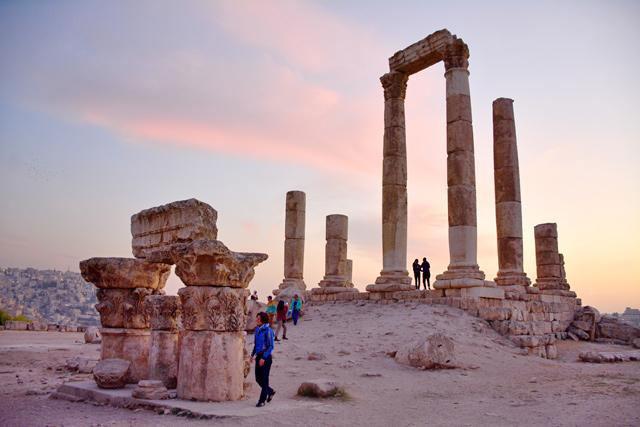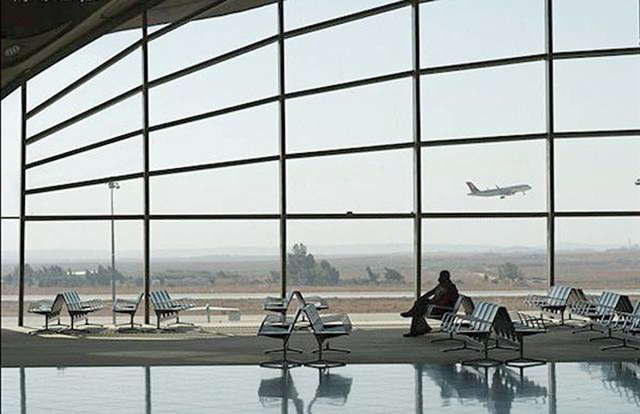You are here
Summer sees drop in int’l tourists to Jordan, numbers increase from neighbouring countries — JSTA
By Batool Ghaith - Aug 29,2022 - Last updated at Aug 30,2022

Tourists visit the Amman Citadel in the capital's Jabal Al Qalaa neighbourhood in this file photo (JT file photo)
AMMAN — Extreme weather conditions during summer time typically decreases international tourism in Jordan, yet attracts more tourists from the GCC and the Arab region, according to the Jordan Society of Tourism and Travel Agents (JSTA)
Member of the JSTA board of directors Mahmoud Al Khasawneh indicated that there is “great diversity” amongst tourists coming to Jordan that is seasonally dependent.
According to Khasawneh, during the last quarter of the year and the spring season, inbound tourism to the Kingdom is “purely from America and Europe”.
“During summer and due to the increasing temperatures, the international tourism rates in Jordan are affected. Therefore, during summer, travel agencies focus on tourism from the GCC and other neighbouring Arab countries such as Egypt, Tunisia, Palestine and others,” Khasawneh told The Jordan Times in an interview.
International tourism booms in Jordan during the last quarter of the year during the holiday season (from November until mid-January), he added.
Reservation rates from international tourists are usually 200 per cent higher in the last quarter of the year compared with other seasons, Khasawneh said.
“From June until September, the rate of reservations made by Europeans decreases by 50 per cent. On the other hand, reservation rates from the GCC and other Arab countries increase by 200 per cent, which is a direct correlation regarding seasonal tourism in Jordan,” Khasawneh continued.
Regional tourism rates during this year’s summer season have increased by more than 100 per cent compared with the same period last year, likely due to the festivals and concerts held in Jordan which have attracted a greater number of Arab tourists, according to Khasawneh.
He also noted that the Ukrainian-Russian crisis has disrupted Russian tourism, which usually makes up 250 per cent of summer reservations in Jordan. The crisis likely affected the overall rate of reservations this summer, as numbers should have been higher in Aqaba and the Dead Sea.
Tourism expert and incoming tourism operator, Rajaa Jazzar, told The Jordan Times that this year’s summer season did not lead to any issues with international inbound tourism.
“Incoming tourism season is in the upcoming three months, and no one has cancelled August arrivals so far either,” she said.
On the other hand, Malik Athamneh, a sales manager at a five-star hotel at the Dead Sea, said that the extreme weather conditions the Kingdom is witnessing is “definitely impacting” the number of domestic tourists.
“People usually avoid the Dead Sea and Aqaba during such heatwaves. Compared with the beginning of August, our occupancy rates have dropped by nearly 25 per cent, not only because of the weather, but also because the new academic year is approaching,” Athamneh told The Jordan Times.
On the other hand, Athamneh noted that Arab and foreign tourists are still arriving at the same rates as expected.
“We are expecting even more during the upcoming months,” he added.
Related Articles
AMMAN — Jordan’s inbound tourism will rise about 20 per cent in September, according to a stakeholder“During the summer, most people who vis
AMMAN — The recent toxic chlorine gas leak incident at the Aqaba port has had no impact on domestic and inbound tourism, according to sector
AMMAN — Despite record-high domestic tourism revenue, outbound tourism is still “struggling” to bounce back from the impact of the COV













